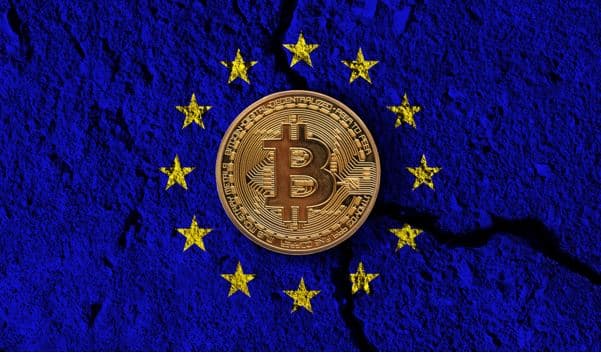Cryptocurrency Regulations: A Comprehensive Guide

Today, cryptocurrency is becoming more popular among investors. There are several reasons for this popularity. First, digital currencies are more accepted worldwide than they were before. But the main reason is because of regulations and legislation related to cryptocurrency.
As more countries create and enforce clear and easy-to-understand rules, investors feel more secure when purchasing cryptocurrencies. It also leads to more ordinary investors learning about cryptocurrency trading rules and how to buy cryptocurrency.
This article covers regulations related to cryptocurrency. The article covers measures used to prevent criminal activity, how cryptos are taxed, and other crucial aspects.
Legal Government Recognition
Many governments decided to legalize cryptocurrencies, establishing a clear legal framework for their usage and operation. This acknowledgment entails classifying cryptocurrencies as legal assets or financial instruments.
Thus, this decision makes virtual currencies subject to existing financial rules and regulations, thus businesses must follow crypto compliance. Legal recognition leads to regulated crypto markets, encouraging adoption and attracting traditional financial institutions.
Some regulations include the following:
- Financial Crimes Enforcement Network (FinCEN).
- The Markets in Cryptoassets (MiCA).
The first example operates in the U.S., and the second one is legislation working in the European Union.
Financial Crimes Enforcement Network (FinCEN)
The Financial Crimes Enforcement Network (FinCEN) is a regulatory authority in the United States that reports to the Treasury Department. The main idea of FinCEN is to prevent money laundering, terrorism financing activities, and other similar financial crimes.
It requires financial institutions, including cryptocurrency businesses and cryptocurrency exchanges, to follow anti-money laundering (AML) and counter-terrorism financing (CTF) legislation. This cryptocurrency regulation safeguards the financial system.
The Markets in Cryptoassets (MiCA)
MiCA regulation is the EU regulation that governs the issuing and provision of cryptocurrency and stablecoin-related services. MiCA was adopted by the European Parliament on April 20, 2023. The striking thing is that it’s the world’s first and sole legislation of its kind, paving the way for other countries who might want to create similar laws.
Securities Laws
Securities laws apply to cryptocurrencies that are considered securities or investment contracts. Compliance with registration requirements, disclosure duties, and anti-fraud rules is typical. Securities laws must protect crypto investors while also ensuring transparency and accountability in the cryptocurrency industry. The problem is that too rigid restrictions might hinder innovation and limit market access for smaller projects.
Anti-Money Laundering (AML)
Anti-Money Laundering (AML) refers to rules and procedures that try to prevent and identify the use of virtual currencies for money laundering and other illicit activities. The procedure entails a mechanism to authenticate users’ identities while maintaining data privacy. AML also leads to monitoring transactions for suspicious trends and reporting any suspicious activity to the appropriate authorities.
AML is critical for maintaining the financial system’s integrity, preventing terrorist financing, and ensuring compliance with legal requirements. It often entails Know Your Customer (KYC) procedures (more on that further in the article), transaction monitoring, and adherence to regulatory reporting requirements.
Know Your Customer (KYC)
Know Your Customer (KYC) is a method used by financial institutions and cryptocurrency exchanges to authenticate their customers’ identities. KYC requirements compel businesses to gather and verify specific information about their customers to reduce the risk of financial crimes such as money laundering and identity theft.
Individuals or companies using cryptocurrency services are usually required to give identifying information, such as government-issued identification documents, proof of address, and extra information about the source of their funds.
Consumer Protection
Governments enforce rules to protect the virtual currency industry and its customers. Regulations often include processes for disclosure requirements, dispute resolution processes, and precautions against fraud and scams.
Consumer protection laws aid in the development of trust among users and foster a safer environment for exchanging or trading cryptocurrencies. However, some rules may be too harsh and hinder the progress of small businesses. Today, it seems that governments try to balance between a comfortable environment for consumers and good conditions for crypto businesses.
Taxation
Cryptocurrency is subject to taxation, especially if a person holding crypto in their cryptocurrency wallets decides to sell the coin and gains a profit. However, tax rules may be different in various countries, so even holding crypto may lead to a requirement to file taxes.
As mentioned, the taxation of cryptocurrency varies greatly between countries jurisdictions. Some countries consider cryptocurrencies to be property or assets, and when they are sold or traded, they are subject to capital gains tax.
Some governments view virtual currencies as currencies or commodities which are subject to separate tax restrictions. Clear and consistent tax policies give users and businesses assurance, allowing for further adoption and integration of cryptocurrencies into the economy. Thus, if you plan to buy cryptocurrency, ensure to check the taxation rules in your country or ask for professional assistance.
Exchange Regulations
Most people choose to purchase cryptocurrencies on exchanges rather than engage in mining or staking. Crypto exchanges that assist the buying and selling of cryptocurrencies are subject to special restrictions and regulations.
Some of the most popular examples of such restrictions include capital reserve requirements, licensing requirements, cybersecurity standards, and operating guidelines. Moreover, all exchanges must comply with AML and KYC rules. Exchange laws aim to protect user funds, preserve the integrity of trading systems, and prevent market manipulation.
Final Thoughts
All these mentioned regulations aim to make the cryptocurrency industry more transparent and secure for traders and crypto businesses. As the rules are getting clearer, businesses and global corporations are more willing to adopt cryptocurrency.




